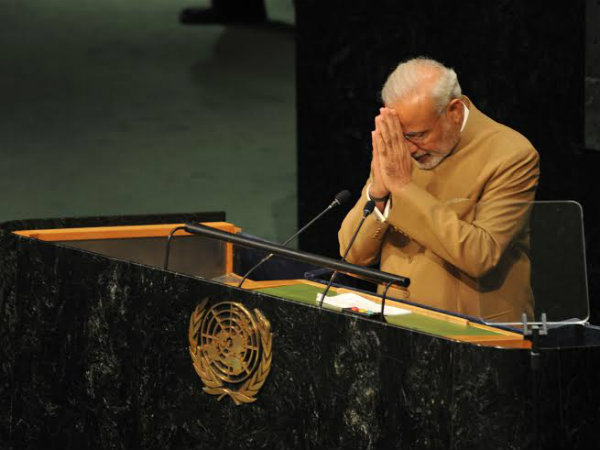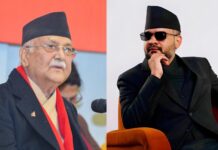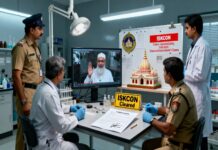From this article, we will be starting a new series of discussions that is about India and the UNSC. Starting with, we’ll be discussing a bit about UNSC and the criteria of selection and what are permanent and non-permanent members.
INDIA’S NON-PERMANENT SEAT
All the countries in the Asia-Pacific Group at the United Nations have unanimously supported India for a non-permanent seat at the UN Security Council (UNSC) for a two-year term in 2021-22.
1. Both Pakistan and China have supported India’s candidature.
2. The Asia-Pacific Group consists of 55 members states. They get to nominate one of its members for the June 2020 elections to a non-permanent seat on the UNSC.
3. India has been a non-permanent member of the UNSC seven times, the most recent was for the year 2011-12.
4. Estonia, Niger, Tunisia, Vietnam and St. Vincent and the Grenadines were elected earlier this month.
5. India has been contending for permanent membership at the UNSC for many years and has been a part of the G-4 grouping which is continuously lobbying for UNSC Reforms.

UNITED NATION SECURITY COUNCIL
1. The United Nations Charter established six main organs of the United Nations, including the Security Council.
2. It gives primary responsibility for maintaining international peace and security to the Security Council. They may meet whenever peace is threatened.
3. All members of the United Nations agree to accept and carry out the decisions of the Security Council.
While other organs of the United Nations make recommendations to member states, only the Security Council has the power to make decisions. The member states are then obligated to implement under the Charter.

PERMANENT AND NON-PERMANENT MEMBERS
Significantly, the UNSC is composed of 15 members, 5 permanent and 10 non-permanent.
- Five permanent members: China, France, the Russian Federation, the United Kingdom, and the United States.
- Ten non-permanent members: Elected for two-year terms by the General Assembly.
- Each year, the General Assembly elects five non-permanent members (out of ten in total) for a two-year term. The ten non-permanent seats are distributed on a regional basis.
- As stipulated in rule 144 of the rules of procedure, a retiring member is not eligible for immediate re-election.

SELECTION OF NON-PERMANENT MEMBERS
- In accordance with rule 92 of the rules of procedure, the election is held by secret ballot and there are no nominations. Under rule 83 of the rules of procedure, the non-permanent members of the Security Council are elected by a two-thirds majority.
- Five for African and Asian countries.
- One for Eastern European countries.
- Two for Latin American and Caribbean countries.
- Two for Western Europe and other countries.
Moreover, aspiring member needs the vote of two-thirds of the 193 UN General Assembly members to win a non-permanent seat on the UNSC.
Further, Article 23 of the UN Charter concerns the composition of the Security Council.
CONTRIBUTIONS OF INDIA AT UNSC
India has served seven times in the UN Security Council.
- 1950-51: India, as President of UNSC, presided over the adoption of resolutions calling for a cessation of hostilities during the Korean War and for assistance to the Republic of Korea.
- 1967-68: India co-sponsored Resolution 238 extending the mandate of the UN mission in Cyprus.
- 1972-73: India pushed strongly for admission of Bangladesh into the UN.
- 1977-78: India was a strong voice for Africa in the UNSC and spoke against apartheid and for Namibia’s independence in 1978.
- 1984-85: India was a leading voice in UNSC for resolution of conflicts in the Middle East, especially Palestine and Lebanon.
- 1991-92: Participated in the first-ever summit-level meeting of the UNSC and spoke on its role in the maintenance of peace and security.
- 2011-2012: India was a strong voice for the developing world, peacekeeping, counter-terrorism and Africa. The first statement on Syria was during India’s Presidency at the UNSC.
During the 2011-12 term, India chaired the UNSC 1373 Committee concerning Counter-Terrorism, the 1566 Working Group concerning threat to international peace and security by terrorist acts, and Security Council 751/1907 Committee concerning Somalia and Eritrea.
Earlier in 1996, India took the initiative to pilot a draft Comprehensive Convention on International Terrorism with the objective of providing a comprehensive legal framework to combat terrorism.
Also, India worked closely with its partners in the UNSC to ensure the listing of Pakistan-based terrorist Masood Azhar under the UNSC’s 1267 Sanctions Committee (May 2019) concerning al-Qaeda and ISIS and associated individuals and entities, which was pending since 2009.

CHALLENGES AT UNSC
China Challenge:
· India is entering the UNSC at a time when Beijing is asserting itself at the global stage much more vigorously than ever. It heads at least six UN organizations and has challenged the global rules.
· China’s aggressive behavior in the Indo-Pacific, as well as the India-China Border, has been visible in all of 2020.
· China has tried to raise the issue of Kashmir at the UNSC.
Post-Covid World Order:
As the global economy is in shambles with various countries facing recession and health emergencies. To handle all these situations need a careful strategy to move the world out of this burdening challenge.
Balancing USA and Russia and Unstable West Asia:
Above all, with the situation deteriorating between the USA and Russia and increasing tensions between the US and Iran, it will be a tough situation to handle for India. In conclusion, India needs to uphold rule-based world order with due respect to human rights ensuring the national interest.

With this, we end this article. In the next article, we’ll be discussing the need for UNSC reforms and India’s stand as a Permanent Member.
Also, Read| EMERGENCY IN SRI LANKA





